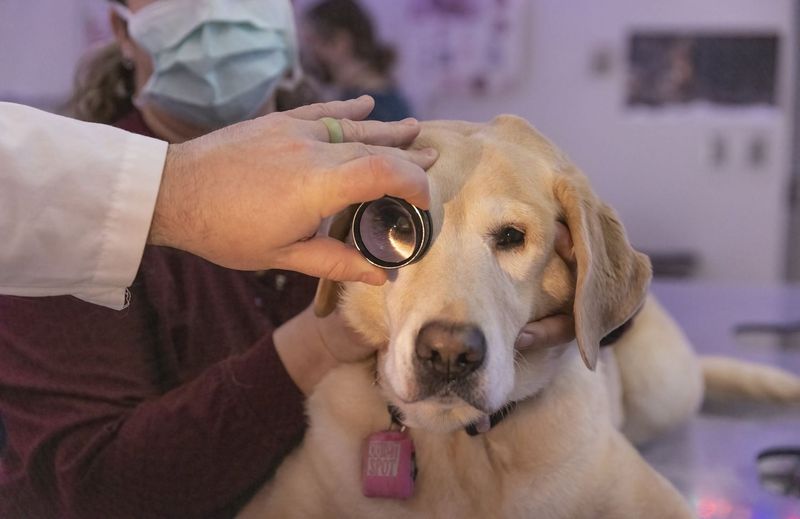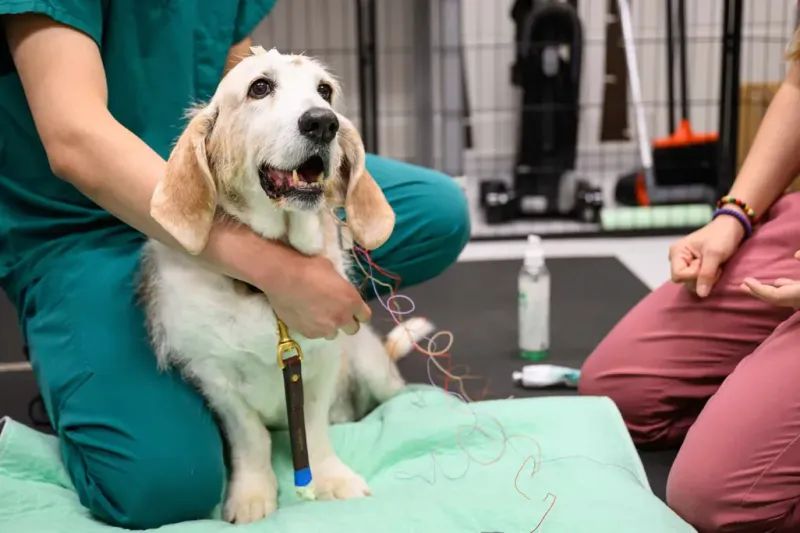The Dog Aging Project is transforming how we understand and improve the longevity of our beloved canine companions and, by extension, ourselves. This groundbreaking initiative seeks to uncover the secrets of aging and its impact on health, benefiting our furry friends and humans alike. In this article, we explore ten specific ways this project fosters longer, healthier lives for both dogs and their human counterparts.
Understanding Canine Genetics
Dogs, with their varied breeds and genetic makeups, provide a unique opportunity to study genetics in a way that closely parallels human genetics. Did you know that by examining canine genomes, scientists can gain insights into genetic diseases that affect both species? This research is pivotal in developing targeted treatments. Researchers at the Dog Aging Project are delving deep into identifying genetic markers that contribute to longevity and disease resistance in dogs. This effort not only helps in breeding healthier dogs but also in understanding human genetic predispositions. A shared journey in decoding the genetics of aging.
Monitoring Health Through Wearables
Wearable technology for dogs is no longer a futuristic concept. With devices that can monitor heart rate, activity levels, and even sleep patterns, dog owners are gaining unprecedented insight into their pet’s health. These gadgets provide real-time data, which is invaluable for tracking health trends and identifying potential issues early. The Dog Aging Project uses these innovative tools to gather data that contribute to wider health studies. As these technologies evolve, they enhance the way we monitor health, both canine and human, fostering a proactive approach to wellness.
Improving Diet and Nutrition
Nutrition plays a critical role in the aging process, and this is just as true for dogs as it is for humans. The Dog Aging Project is researching optimal diets that promote longevity and health. Did you know that diet can influence not just physical health, but also cognitive function in dogs? By understanding these nutritional needs, we can formulate diets that support a longer, healthier life for our pets. This work also benefits humans, as insights into canine diets can reflect on human nutritional science, enhancing our understanding of diet-related aging mechanisms.
Exploring the Microbiome
The microbiome, comprising trillions of microorganisms living in and on our bodies, plays a crucial role in our overall health. Dogs serve as an excellent model for studying the human microbiome due to their similar environment and lifestyle. Research from the Dog Aging Project focuses on how the canine microbiome affects health and aging. This knowledge aids in developing dietary and probiotic interventions that can improve gut health. As this field advances, it promises to unlock new pathways for enhancing longevity and quality of life, benefiting both species.
Unveiling Aging Biomarkers
Identifying biomarkers of aging is a cornerstone of the Dog Aging Project. These biological indicators help scientists understand how aging progresses in dogs and humans alike. By analyzing these markers, researchers aim to detect early signs of age-related diseases and develop preventive strategies. This approach not only benefits canine health by extending their lifespan but also offers insights into human aging processes, potentially leading to breakthroughs in age-related healthcare treatments. A mutual endeavor in unraveling the mysteries of aging that brings us closer together.
Enhancing Cognitive Health
Cognitive health is essential for maintaining quality of life as we age. Dogs, much like humans, can experience cognitive decline, but early intervention can make a significant difference. The Dog Aging Project is pioneering research into cognitive health, exploring how mental stimulation and environmental factors can slow aging’s effects. With findings from canine studies, we’re learning methods to bolster cognitive resilience, benefiting both pets and people. This research fosters a collaborative journey toward healthier, more fulfilling lives, highlighting the interconnectedness of our cognitive well-being.
Studying Environmental Impacts
The environment in which we live significantly influences aging, and dogs are no exception. The Dog Aging Project examines how factors like pollution, climate, and living conditions impact dogs’ health. This research not only aids in creating better living environments for our pets but also mirrors human studies on environmental aging impacts. By identifying harmful environmental elements, we can implement strategies to mitigate their effects, ensuring a healthier, longer life for both dogs and their humans. A shared mission in safeguarding our planet and its inhabitants.
Promoting Physical Activity
Staying active is crucial for a healthy life, and dogs are the perfect exercise companions. Regular physical activity is shown to extend lifespan and improve quality of life for both dogs and humans. The Dog Aging Project emphasizes the importance of exercise in its studies, uncovering the best practices for maintaining an active lifestyle. Engaging in regular activity not only keeps dogs healthy but also encourages owners to stay fit, creating a mutually beneficial cycle. This focus on joint activity underscores the project’s commitment to prolonging life through movement.
Developing Lifelong Social Bonds
Social connections are vital for emotional health, and dogs, with their unwavering loyalty, significantly enhance our social lives. The Dog Aging Project explores the profound impact of these bonds on aging. Did you know that having a dog can reduce stress and improve mood? By fostering strong human-animal relationships, the project highlights the role of companionship in promoting well-being and longevity. These social bonds not only enrich our lives but also create a supportive community that champions the health and happiness of both dogs and their humans.
Pioneering Longevity Research
The Dog Aging Project stands at the forefront of longevity research, pushing boundaries to understand how we can extend life. By studying dogs with their shorter lifespans, researchers can observe generational changes swiftly, applying findings to human studies. This pioneering work sheds light on biological processes that govern aging, opening doors to innovative treatments. As we unravel the intricacies of longevity, the benefits cascade to both species, enhancing life quality and duration. A testament to the shared journey of discovery, where dogs lead the way in aging research.










